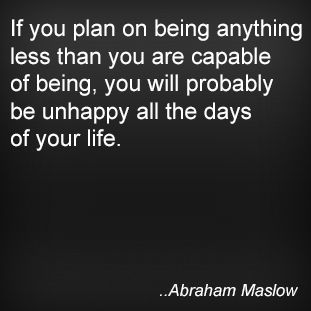Unpack that title for a second.
I flat out cannot tell you how to be happy. I can, possibly, help you understand how to be less unhappy!
What does it take to make someone happy?
Recently, it was posed to me by a client who has lots to be thankful for, and is not the type of person one would think would have much reason to be unhappy. She is attractive, intelligent, successful, financially secure, and healthy. What more could one ask for? Gratitude is often the answer no one wants to hear, but I think we need to go a little deeper than “count your blessings” when confronted with this question. More puzzling is when it is asked by people who otherwise should be happy, at least on the surface.
First off, let me say that if you are unhappy and not trying to eat better, work out, use alcohol in moderation, and avoid drugs, then you are not really giving yourself the best chance. When someone comes to me on a quest for happiness, I always start here and would love to help you start your journey as well.
Moving forward…
If you ask 100 people what makes them happy, you can get 100 different answers. Paradoxically, ask them what makes them unhappy, anxious, and depressed, and you will get a more narrow and similar response.
While I cannot likely tell you in a blog post what will make you happy, what I might be able to offer here is what you can do to be less miserable.
Now, before you say, “Michael, there is no way you can teach me how to prevent unhappiness entirely,” I would agree. There are things that happen in life that will lead to all sorts of negative feelings like anxiety, sadness, remorse, jealousy, and so on. If your dog gets hit by a car, there is little I can do to help you avoid that sadness.
What we can work on is how badly you want to make those feelings hurt when they arise. I believe this is the difference between “happy” and “unhappy” people. Certainly, we can agree that happy people have bad things happen to them, just as easily as we can see that unhappy people have plenty of good things happen to them.
A lot of this is how you interpret and communicate what is going on. Language and what we say, both out loud and in our internal monologues, are how we are programmed. It is no secret that computer programs are written in “programming languages.” Much like computers, we use programming languages to influence our thoughts and feelings about all things.
- Unhappy people translate nuisance into horror.
Simply put, when bad things arise, referring to them as “unfortunate,” “frustrating,” or “disadvantageous” is much more healthy and logically accurate than referring to them as “awful”, “terrifying”, “horrible”, “tragic”, etc These exaggerations are one way in which we condition ourselves to take a much harder and more difficult position when things are not going our way. Tampering that message by using terms like “unfortunate” or “disadvantageous” is an easy habit to create that programs our brains to moderate our emotional responses to negative stimuli.
The mainstream media does this a lot to us. They exaggerate how bad things are to get more views, but hearing about things in this way makes us feel bad about ourselves and can lead to depression.
Remember, no matter how very, very unfortunate a situation is (i.e., a cancer diagnosis), it is still just that. Unfortunate. Words have meaning, and understanding this might be the most important thing in our quest for happiness.
I know what you might think. “Mike, when I say something is devastating, I don’t mean it literally,” and I get it. However, that beautiful brain you are trying to positively program does not know the difference, and this is where the hidden danger lies.
Note: This is also why choosing your words carefully with children is so important.
Now, let’s get into a little understanding of how this works in your brain, and why a simple act of changing how you talk and think about negative events propels you to more balance and positive emotional harmony.
When we label something as “awful” or “terrible,” it gives us the illusion that we have no control over this situation or the power to manage or cope with it. I am here to tell you, that no matter what is thrown in your lap, you 100% do have the ability to cope with it, if not change it altogether. Limiting yourself or teaching your brain to think and communicate with words like this is paralyzing.
I’ve been divorced twice, lost young, close friends, been diagnosed with stage 4 cancer, nearly lost my one-year-old son to a seizure, been bankrupt more than twice in my life, been robbed and left for dead by a woman I loved, had a massive, six-figure IRS debt, and nothing in my life has been devastating. Merely unfortunate. Even if you feel otherwise, and you likely will in the moment. It is time to start training our brains to search for solutions and ways to recover.
People often do this in relationships, when they describe the loss of a lover or partner as “devastating” or say things like “I will never get over this.” Instead, labeling it as “unfortunate” creates a mental counterbalance to the possibility of a FORTUNATE outcome. What that fortunate outcome is, is varied, but it is a little brain hack that using words like “unfortunate” forces you to use the word “fortunate”. You can see the word “advantageous” in “disadvantageous” and “comfortable” in “uncomfortable” and so on. Your brain, similar to a search engine, begins to search out the commands in the words we give it…even when they are parts of compound words.
- Unhappy people speak and think in absolutes
When you believe and speak in “shoulds” or “musts” you are taking on some God-like power that you do not have. If you put yourself in a position where things MUST be one way or the other, you are going to live a very disenfranchised life full of disappointment. Worse than being disappointed when something that “must” happen does not occur, is that when it does occur, instead of being surprised, excited, and grateful, you become complacent and expect it. Absolutes can rob you of the joy that you deserve when things do go your way.
While this might seem a little too easy, it really works and is backed by psychology. More so, I think you will find that employing this tip is easy in theory; just wait until you see how often you default to an absolute or exaggeration and have to correct yourself. Just wait until you see how often your friends and family make these linguistic errors. It is definitely something that needs loads of practice, but knowing that it is a hole in our mental health defense is a step in the right direction.
- Using Extreme Negatives
I saved this one for last because it is really pretty obvious. While the other linguistic exercises are what I would consider “brain hacks” that work whether you “mean” what you say or not, this one makes a little more obvious sense.
Using words like “hate,” “disgust,” “appalling,” or “evil” to describe other people is both an exaggeration and an extra negative. Not only are they likely not true, but they hurt us more than the people we are using them to describe. For example, when we call a politician “evil,” we are awarding him some otherworldly power as if he/her transcends the human condition. It just gives them too much power and takes it away from us.
Describing someone you don’t like as someone you “enjoy less than most” is not only kind of funny, but actually gets your point across better without being overly negative. It is a little sarcastic, which might be why it is one of my favorites, but who said linguistic programming can’t be a little more fun?


